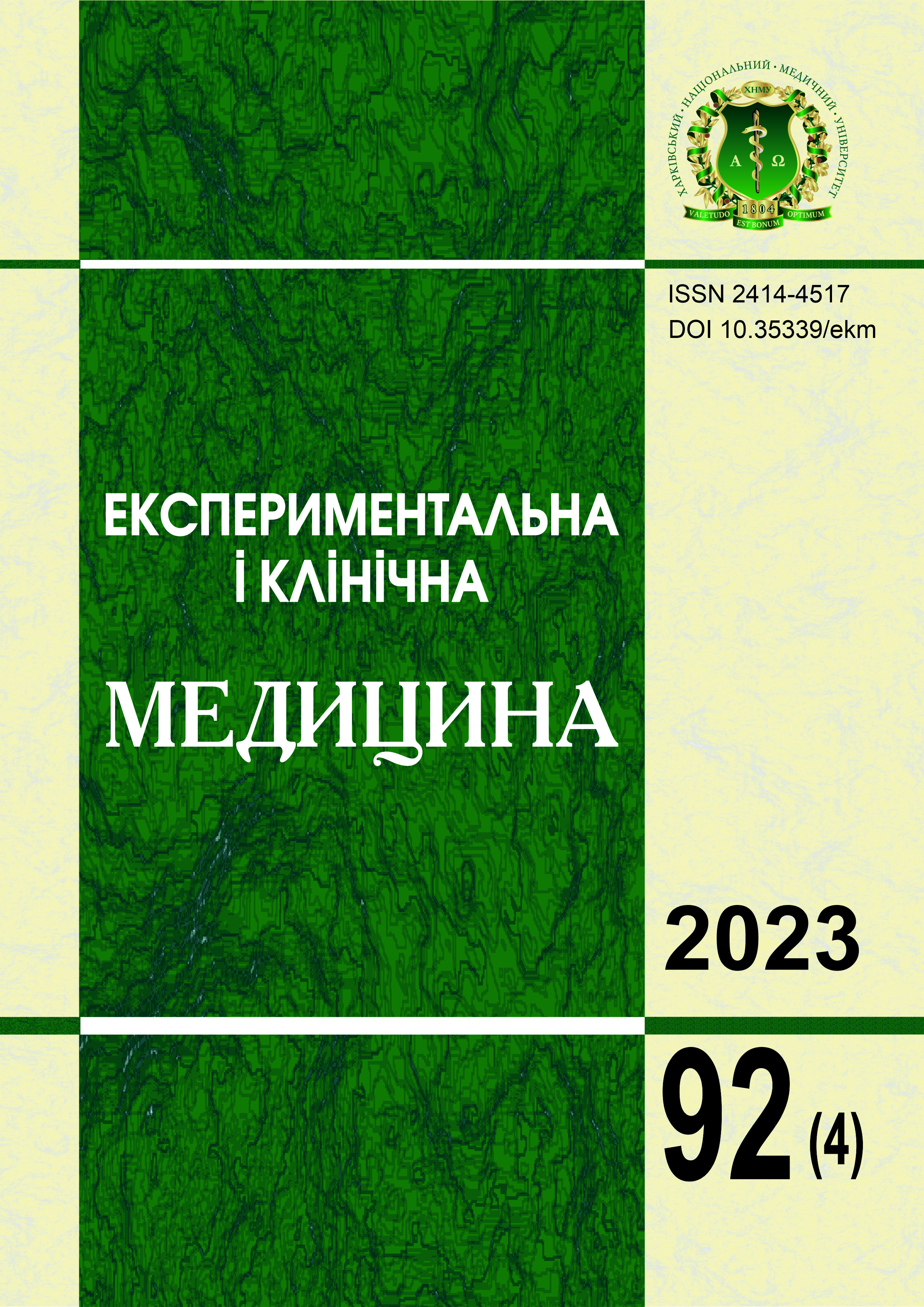Abstract
It is a well-known fact that for most people who have had coronavirus disease, cognitive impairment is one of the most persistent and debilitating consequences, along with anxiety and depressive disorders. The aim of the study was to develop and test a set of psychotherapeutic interventions in the system of psychosocial rehabilitation of patients with cognitive disorders in the setting of COVID-19. To achieve this goal, subject to the signing of informed consent in compliance with the principles of bioethics and deontology, we conducted a comprehensive clinical, psychopathological and psychodiagnostic examination of 75 patients (37 women and 38 men) with cognitive disorders in the setting of COVID-19, both sexes, with an average age of (39.0±3.4) years. According to the results of the study, 56.2% of men and 57.9% of women had mild cognitive disorders and 43.8% and 42.1%, respectively, moderate cognitive disorders, which were manifested by a decrease in verbal, concentration, distraction, and slower information processing speed, difficulty in remembering recent events, difficulty in long-term concentration and slowing down the pace, slight difficulty in orientation, decreased perceptual and diagnostic performance, decreased speed of counting operations, and a pronounced reaction of mental fatigue. According to the results of the study, against the background of the developed complex of psychotherapeutic interventions, 84.8% of the examined men and 86.3% of women showed positive dynamics of psychopathological symptoms, improvement of cognitive status and increased psychosocial adaptation. There was an improvement in overall cognitive performance according to the Addenbrooke's Scale for the Assessment of Cognitive Abilities (79.6% and 81.2% of the subjects, respectively). The data obtained in the course of the study indicate the effectiveness of a complex of psychotherapeutic interventions using cognitive training, cognitive behavioral psychotherapy, art therapy and psychoeducation in the system of psychosocial rehabilitation of patients with cognitive disorders in the setting of COVID-19.
Keywords: SARS-CoV-2 virus, cognition, cognitive abilities.
References
Talevi D, Socci V, Carai M, Carnaghi G, Faleri S, Trebbi E, et al. Mental health outcomes of the COVID-19 pandemic. Riv Psichiatr. 2020;55(3):137-44. DOI: 10.1708/3382.33569. PMID: 32489190.
Vindegaard N, Benros M.E. COVID-19 pandemic and mental health consequences: Systematic review of the current evidence. Brain Behav Immun. 2020;89:531-42. DOI: 10.1016/j.bbi.2020.05.048. PMID: 32485289.
WHO COVID-19 Dashboard [Internet]. Available at: https://covid19.who.int [accessed 20 Dec 2023].
Liu Y-H, Wang Y-R, Wang Q-H, Chen Y, Chen X, Li Y, et al. Post-infection cognitive impairments in a cohort of elderly patients with COVID-19. Molecular Neurodegeneration. 2021;16(1):48. DOI: 10.1186/s13024-021-00469-w. PMID: 34281568.
Tavares-Junior JWL, de Souza ACC, Borges JWP, Oliveira DN, Siqueira-Neto JI, Sobreira-Neto MA, Braga-Neto P. COVID-19 associated cognitive impairment: A systematic review. Cortex. 2022;152:77-97. DOI: 10.1016/j.cortex.2022.04.006. PMID: 35537236.
Nikishkova IM. The problem of profile and duration of cognitive impairments associated with COVID-19 (literature review). Ukrains'kyi visnyk psykhonevrolohii [Ukrainian Herald of Psychoneurology]. 2023;31(2(115)):98-104. DOI: 10.36927/2079-0325-V31-is2-2023-14. [In Ukrainian].
Almeria M, Cejudo JC, Sotoca J, Deus J, Krupinski J. Cognitive profile following COVID-19 infection: clinical predictors leading to neuropsychological impairment. Brain Behav. Immun. Health. 2020;9:100163. DOI: 10.1016/j.bbih.2020.100163.
Maruta NO, Fedchenko VYu, Panko TV, Yavdak IO, Semikina OYe, Lapinska OR. Features of primary psychopathological disorders due to coronavirus disease COVID-19. Ukrains'kyi visnyk psykhonevrolohii [Ukrainian Herald of Psychoneurology]. 2023;31(1(114)):60-9. DOI:10.36927/2079-0325-V31-is1-2023-9. [In Ukrainian].
Kozhyna HM, Strelnikova IM, Tieroshyna IF. Adaptation disorders in relatives of patients with COVID-19. The journal оf the European psychiatric association. 2021;64:283.
Maruta NO, Fedchenko VYu, Panko TV, Yavdak IO, Semikina OYe, Lapinska OR, Markozova LM. Clinical and anamnestic correlates of the formation of newly diagnosed mental disorders in patients who suffered from COVID-19 and were exposed to the stressors of the SARS CoV-2 pandemic. Ukrains'kyi visnyk psykhonevrolohii [Ukrainian Herald of Psychoneurology]. 2023;31(4(117)):75-81. DOI: 10.36927/2079-0325-V31-is4-2023-11. [In Ukrainian].
Yurieva LM, Nosov SH, Mamchur OI, Nikolenko AIe, Ohorenko VV, Shusterman TI, et al. Crisis states in modern conditions: diagnosis, correction and prevention: a textbook for psychiatrists, family doctors and medical psychologists. Ed. Yurieva LM. Kyiv: Gallery Print; 2017. 172 p. [In Ukrainian].
Mioshi E, Dawson K, Mitchell J, Arnold R, Hodges JR. The Addenbrooke's Cognitive Examination Revised (ACE-R): a brief cognitive test battery for dementia screening. International Journal of Geriatric Psychiatry. 2006;21(11):1078-85. DOI: 10.1002/gps.1610. PMID: 16977673.
The experience of experiencing the COVID-19 pandemic: remote psychological research, remote psychological support: materials of the online seminars on 23 Apr 2020 "The experience of quarantine: remote psychological help and support" and on 15 May 2020 "Remote psychological research in the conditions of the COVID-19 pandemic and quarantine". Kyiv; 2020. 68 p. DOI:10.33120/QERPAProceeding-2020
Organic, mental disorders: diagnostics, rehabilitation and prevention. Textbook. Ed. Yurieva LM. Dnipro: New Ideology; 2019. 124 с. [In Ukrainian].

This work is licensed under a Creative Commons Attribution-NonCommercial-ShareAlike 4.0 International License.

